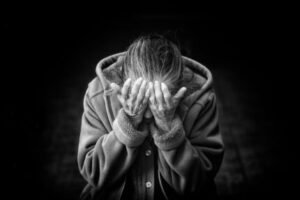Medically reviewed by Dr. Ramesh Gaddam, M.D. — Written by Sumalatha, D.N.H.E
Excessive sleepiness in the elderly is a growing concern that can significantly impact their quality of life. As individuals age, they may experience increased fatigue and daytime drowsiness, which can stem from a variety of underlying health issues, medications, or lifestyle factors.
Understanding the causes and consequences of this condition is crucial, as it not only affects physical and mental well-being but also poses risks for safety and independence.
Addressing excessive sleepiness is essential for enhancing overall health in older adults.
1. Causes of Excessive Sleepiness in the Elderly
There are several factors that can contribute to excessive sleepiness in the elderly population.
It is important to identify the underlying causes to develop an effective management plan.
1. Obstructive Sleep Apnea (OSA)
OSA is a common sleep disorder characterized by repeated episodes of upper airway obstruction during sleep.
It is estimated that up to 50% of older adults may have some degree of sleep-disordered breathing.
2. Cardiovascular Diseases
Conditions such as heart failure, atrial fibrillation, and hypertension can lead to excessive daytime sleepiness due to their impact on sleep quality and overall health.
3. Neurological Disorders
Neurodegenerative diseases like Parkinson’s disease, Alzheimer’s disease, and stroke can disrupt normal sleep patterns and cause excessive daytime sleepiness.
4. Medications
Many commonly prescribed medications can have sedative effects and contribute to excessive sleepiness in the elderly.
These include antidepressants, antipsychotics, benzodiazepines, and certain pain medications.
It is crucial to review medication lists and monitor for potential side effects.
5. Sedentary Behavior
Lack of physical activity and a sedentary lifestyle can contribute to daytime fatigue and sleepiness in older adults.
6. Poor Sleep Hygiene:
Irregular sleep schedules, uncomfortable sleeping environments, and poor sleep habits can disrupt sleep quality and quantity, leading to excessive daytime sleepiness.
7. Nutritional Deficiencies:
Deficiencies in certain nutrients, such as vitamin D and iron, have been associated with increased fatigue and sleepiness in the elderly population.
Summary
Understanding the underlying causes of excessive sleepiness is crucial for developing an effective management plan tailored to the individual’s needs.
A comprehensive assessment by a healthcare professional can help identify the contributing factors and guide appropriate interventions.
2. Consequences of Excessive Sleepiness
Excessive sleepiness in the elderly can have profound effects on various aspects of health and daily life.
Understanding these consequences is essential for recognizing the urgency of addressing this issue.
1. Increased Risk of Falls and Injuries:
Drowsiness can impair coordination and balance, significantly increasing the risk of falls.
Falls are a leading cause of injury and hospitalization among older adults, often resulting in fractures and other serious complications.
2. Impaired Immune Function:
Chronic sleepiness can weaken the immune system, making older adults more susceptible to infections and illnesses.
This can lead to longer recovery times and a greater burden on overall health.
3. Depression and Anxiety:
Excessive sleepiness is often linked to mood disorders.
The inability to stay alert and engaged can exacerbate feelings of sadness and anxiety, leading to a downward spiral in mental health.
4. Cognitive Decline:
Sleep is crucial for cognitive function, and persistent excessive sleepiness can contribute to memory problems, decreased attention span, and overall cognitive decline. This can affect daily functioning and independence.
5. Reduced Quality of Life
Excessive sleepiness can limit participation in social activities, hobbies, and interactions with family and friends.
This withdrawal can diminish the overall quality of life and lead to feelings of isolation.
6. Isolation and Loneliness
As social engagement decreases, older adults may experience increased loneliness, which can further impact mental health and well-being.
This isolation can create a vicious cycle, where lack of social interaction contributes to increased sleepiness and vice versa.
Summary:
Recognizing these consequences highlights the importance of addressing excessive sleepiness in the elderly.
Early intervention and comprehensive management strategies can help mitigate these effects, ultimately improving health outcomes and enhancing the quality of life for older adults.
3. Diagnosis and Assessment
Diagnosing the underlying cause of excessive sleepiness in the elderly is crucial for developing an effective management plan.
A comprehensive assessment typically involves a combination of clinical evaluation and diagnostic tests.
Patient History and Symptom Assessment
Healthcare professionals will gather information about the patient’s sleep habits, daytime sleepiness, and any underlying medical conditions.
They may use standardized questionnaires, such as the Epworth Sleepiness Scale, to assess the severity of sleepiness.
Physical Examination
A thorough physical examination can help identify potential causes of excessive sleepiness, such as signs of sleep apnea, cardiovascular issues, or neurological disorders.
Polysomnography (Sleep Study)
This overnight sleep study is considered the gold standard for diagnosing sleep disorders.
It involves monitoring various physiological parameters, such as brain activity, breathing patterns, and oxygen levels, to identify any abnormalities during sleep.
Home Sleep Apnea Testing
For patients who are unable to undergo a sleep study in a laboratory setting, home sleep apnea testing may be an option.
This involves wearing a portable device that records breathing patterns and oxygen levels during sleep in the comfort of the patient’s own home.
Other Tests
Depending on the suspected underlying cause, additional tests may be ordered, such as blood work to check for nutritional deficiencies or cognitive assessments to evaluate for neurological disorders.
Summary
The diagnostic process may involve multiple visits and consultations with healthcare professionals, including primary care physicians, sleep specialists, and geriatric specialists.
It is essential for older adults to communicate any concerns about excessive sleepiness to their healthcare providers to ensure timely and appropriate diagnosis and treatment.
4. Treatment and Management Strategies
Effectively managing excessive sleepiness in the elderly requires a multifaceted approach that addresses the underlying causes while promoting overall well-being.
Treatment strategies can be categorized into medical interventions, behavioral modifications, and psychological support.
1. Continuous Positive Airway Pressure (CPAP) for Obstructive Sleep Apnea:
For those diagnosed with OSA, CPAP therapy is often the first-line treatment.
This device delivers a steady stream of air to keep the airway open during sleep, significantly improving sleep quality and reducing daytime sleepiness.
2. Medication Adjustments
If excessive sleepiness is linked to specific medications, healthcare providers may consider adjusting dosages or switching to alternatives with fewer sedative effects.
Regular medication reviews are essential for older adults, as polypharmacy can exacerbate sleep-related issues.
3. Treatment of Underlying Medical Conditions
Addressing any underlying health issues, such as cardiovascular diseases or depression, is crucial.
This may involve medications, lifestyle changes, or other therapies tailored to the individual’s health needs.
4. Sleep Hygiene Education
Educating older adults about good sleep practices can significantly improve sleep quality.
Recommendations may include maintaining a consistent sleep schedule, creating a comfortable sleep environment, and avoiding stimulants like caffeine and nicotine close to bedtime.
5. Encouraging Physical Activity
Regular physical activity can enhance sleep quality and reduce daytime sleepiness.
Tailored exercise programs, such as walking, swimming, or yoga, can be beneficial, provided they are appropriate for the individual’s health status.
6. Nutritional Support
Ensuring a balanced diet rich in essential nutrients can help combat fatigue.
Older adults should be encouraged to consume foods high in vitamins and minerals, particularly vitamin D and iron, which are crucial for energy levels.
7. Psychological Support
For those experiencing depression or anxiety alongside excessive sleepiness, psychological counseling or therapy can be beneficial.
Cognitive-behavioral therapy (CBT) is particularly effective in addressing sleep-related issues.
Encouraging participation in support groups or social activities can help combat feelings of isolation and loneliness.
Engaging with peers can provide emotional support and promote a sense of community.
Bottom Line
Excessive sleepiness in the elderly is a significant issue that affects their health and quality of life. Understanding its causes and consequences is essential for effective management.
By diagnosing the problem early and using a combination of medical treatments, lifestyle changes, and psychological support, we can help older adults improve their sleep quality and overall well-being.
Addressing this issue is vital for enhancing independence and promoting a better quality of life for seniors.
Frequently Asked Questions(FAQs)
What Causes Excessive Sleeping in the Elderly?
Excessive sleeping in older adults can stem from various factors, including medical conditions, medications, and lifestyle changes. Common causes include:
Conditions like sleep apnea and restless leg syndrome can disrupt sleep patterns and lead to increased daytime sleepiness.
Diseases such as heart disease, diabetes, and depression can contribute to fatigue and excessive sleep.
Many medications prescribed for common ailments can have sedative side effects, leading to increased sleepiness.
Lack of essential nutrients, particularly vitamin D and B12, can result in fatigue and excessive sleeping.
How Much Sleep Does an 80-Year-Old Need?
An 80-year-old typically requires about 7 to 9 hours of sleep per night, similar to younger adults. However, sleep patterns may change with age, leading to more fragmented sleep and increased daytime napping.
Many older adults find they need additional naps during the day to compensate for nighttime sleep disruptions.
What Causes Excessive Daytime Sleepiness?
Excessive daytime sleepiness can be caused by several factors, including:
Conditions like sleep apnea can lead to poor sleep quality and excessive daytime fatigue.
Diseases such as diabetes, heart disease, and depression can contribute to feelings of sleepiness during the day.
Sedative medications or those with fatigue as a side effect can lead to increased daytime sleepiness.
Irregular sleep schedules and unhealthy sleep environments can disrupt normal sleep patterns.
What Is the Cause of Too Much Sleep?
Too much sleep can result from various factors, including:
Chronic illnesses, sleep disorders, and mental health issues can lead to excessive sleep.
Certain medications can induce sleepiness, leading to longer sleep durations.
Sedentary lifestyles and lack of mental stimulation can contribute to excessive sleep.
What Deficiency Causes Too Much Sleep?
Nutrient deficiencies, particularly in vitamin D, vitamin B12, and iron, can lead to fatigue and excessive sleepiness.
These deficiencies can affect energy levels, making individuals feel more tired and prompting longer sleep durations.
How Do You Cure Too Much Sleepiness?
Addressing excessive sleepiness involves a combination of strategies:
Consult a healthcare provider to identify underlying health issues or medication side effects.
Improving sleep hygiene, maintaining a regular sleep schedule, and engaging in regular physical activity can help.
Ensuring a balanced diet rich in essential vitamins and minerals can combat fatigue.
What Medication Is Used to Stop Sleepiness?
Several medications can help manage excessive sleepiness, including:
Modafinil and Armodafinil: These wake-promoting agents are often prescribed for conditions like narcolepsy and sleep apnea.
Stimulants: Medications such as methylphenidate may be used to enhance alertness.
Melatonin: This supplement can help regulate sleep-wake cycles, improving overall sleep quality.
How Can I Stop Feeling Sleepy Immediately?
To combat immediate sleepiness, consider the following strategies:
- Physical Activity: Engage in light exercise or a brisk walk to boost energy levels.
- Hydration: Drink water to stay hydrated, as dehydration can lead to fatigue.
- Bright Light Exposure: Increase exposure to natural light to help reset your internal clock.
How Can I Reduce Sleepiness Naturally?
Natural methods to reduce sleepiness include:
Incorporating physical activity into your routine can enhance energy levels.
Eating balanced meals with adequate nutrients can help maintain energy.
Engaging in stimulating activities or practicing mindfulness can keep you alert.
What Should We Eat to Remove Sleepiness?
Foods that can help combat sleepiness include:
- Fresh produce provides essential vitamins and minerals.
- Foods like oatmeal and whole grain bread can provide sustained energy.
- Lean meats, fish, and legumes can help maintain energy levels throughout the day.
How to Stop Oversleeping?
To reduce oversleeping, consider these tips:
- Go to bed and wake up at the same time every day.
- Keep daytime naps short and avoid napping late in the day.
- Ensure your sleeping area is comfortable and free from distractions.
What Is the Best Natural Sleep Aid for Seniors?
Melatonin is widely regarded as one of the best natural sleep aids for seniors. It helps regulate sleep-wake cycles and can improve sleep quality without significant side effects.
Which Food Makes You Sleepy?
Certain foods can promote sleepiness, including:
- Turkey – Contains tryptophan, which can induce sleepiness.
- Bananas – Rich in magnesium and potassium, which can relax muscles.
- Oatmeal – A complex carbohydrate that can increase serotonin levels, promoting sleep.
What Medication Is Used for Seniors to Sleep?
Common medications prescribed for seniors to aid sleep include:
Benzodiazepines are Often used for short-term management of insomnia.
Z-drugs Medications like zolpidem and eszopiclone are commonly prescribed for sleep issues.
What Is the Most Powerful Sleep Pill?
While effectiveness varies by individual, zolpidem (Ambien) is often considered one of the most potent sleep medications available.
However, it should be used with caution, especially in older adults, due to potential side effects and risks of dependency.
References:
[1] https://www.griswoldcare.com/blog/sudden-excessive-sleepiness-in-elderly-adults/
[2] https://www.ncbi.nlm.nih.gov/pmc/articles/PMC3142094/
[3] https://www.alzark.org/why-does-my-elderly-parent-sleep-all-day/
[4] https://www.sleepfoundation.org/aging-and-sleep
[5] https://veritascare.co.uk/senior-sleeping-the-most-common-causes-of-sudden-excessive-sleepiness-in-the-elderly-and-relations-between-sleep-and-age/
Also Read:
Medically reviewed by Dr. Ramesh Gaddam, M.D.

General Physician, Diabetologist, and Critical Care Specialist.
Discover more from Health Build-Up
Subscribe to get the latest posts sent to your email.


